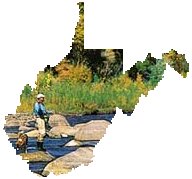While Federal legislation provides a standard structure for regulation, the state of West Virginia ultimately has the authority over the management of water resources and pollution prevention. The West Virginia Department of Environmental Protection (WVDEP) is the official body responsible for implementing and enforcing these regulations. As the WVDEP works to regulate the waters of West Virginia, they have to consider not only the environmental impacts and health concerns of their policies, but the feasibility as well.
West Virginia’s Water Use Management Policies
In addition to the Clean Water Act, the West Virginia Legislature has enacted various policies concerning the use and management of its water resources. West Virginia’s Water Resources Protection and Management Act (WRPMA), which was enacted in 2004 but recently amended in 2008, claimed West Virginia’s surface and groundwater resources to be owned, controlled, and protected by the state’s Department of Environmental Protection (WVDEP). The WRPMA required the WVDEP both to continue collecting annual water use surveys, as well as to produce a State Water Resources Management Plan by November, 2013. The details of this plan are covered in our Policy Memo Kanawha Policy Memo.
West Virginia’s Watershed Management Policies
As far as West Virginia’s watershed management is concerned, the state has as a number of policies and protocols aimed to reduce pollutant emissions that contaminate surface and groundwater resources in order to maintain strict water quality standards set by the Clean Water Act. For best water management practices, the WVDEP has divided the state of West Virginia into 32 major watersheds, two of which belong to the Kanawha River (Upper and Lower). As a product of Clean Water Act regulations, the WVDEP’s Division of Water and Waste Management has adopted the CWA’s five-part watershed management program, which is outlined in the figure below and explained in further detail in our Policy Memo: Kanawha Policy Memo.

